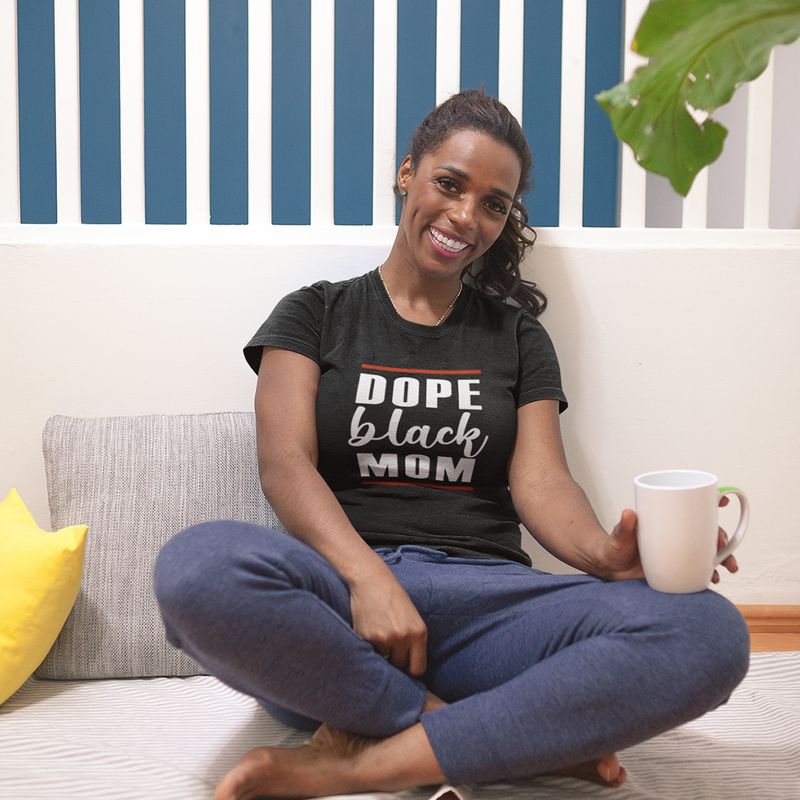Every family has its unique ways of imparting wisdom, and Black families are no exception. Through decades, they’ve mastered the art of delivering life lessons wrapped in seemingly sweet phrases, each hiding a deeper, often cautionary tale.
These sayings may sound gentle at first, but they pack a punch, steering behavior and setting boundaries in a way that’s unmistakably clear.
Exploring these sayings reveals not just cultural nuances but also the universal truths about growing up and learning life’s hard lessons.
1. “A hard head makes a soft behind.”
It’s a phrase that echoes a million times in Black households, evoking memories of childhood rebellion met with swift discipline. This saying is a gentle yet firm reminder that stubbornness often leads to consequences, and sometimes those consequences come in the form of a spanking.
The image of a stern elder with a knowing look captures the essence of the lesson, a reminder that wisdom often accompanies age. The child’s defiance is short-lived in the face of experienced authority.
The saying teaches respect and obedience, encouraging young ones to think before acting. It’s a lesson in humility and foresight.
2. “Keep on living.”
Life’s lessons are best learned through experience, and “Keep on living” is the unspoken promise that time will be the true teacher. The phrase carries the weight of countless life experiences, shared through the eyes of someone who has witnessed life’s ups and downs.
It’s a reminder that even if you don’t understand now, understanding will come in time. The elder’s calm demeanor contrasts with the teen’s skepticism, creating a scene of generational wisdom passed down.
The saying is a comforting assurance that patience and time will unravel life’s mysteries, encouraging growth and understanding.
3. “Don’t let your mouth write a check your behind can’t cash.”
This saying serves as a vivid reminder to choose words carefully, especially when emotions run high. It’s a caution against making boasts or threats that one may not be able to follow through on.
The tone is playful yet serious, emphasizing personal accountability and the potential embarrassment of overpromising. The kitchen scene captures a common family setting where such life lessons are often shared.
Through this saying, families teach the value of integrity and the importance of aligning words with actions, reminding us that wisdom often lies in restraint and thoughtfulness.
4. “I brought you into this world, and I can take you out.”
Packed with authority, this phrase sets the record straight about who’s in charge. It’s a lighthearted yet firm reminder of the parental role, emphasizing respect and obedience.
The playful threat carries undertones of love and responsibility, illustrating the balance between nurturing and discipline. The parent’s confident stance and the child’s wide-eyed wonder make the scene relatable.
This saying conveys the gravity of parental duty and the boundaries it sets, teaching children about respect, limits, and the unique dynamics of familial relationships.
5. “Fix your face.”
In the heat of an eye roll or a pout, “Fix your face” serves as a prompt to adjust one’s expression and attitude. It’s a gentle nudge towards self-awareness and emotional regulation.
The bustling shopping mall setting captures the spontaneity of such reprimands, often given in public spaces where appearances matter. The stern yet caring parental look emphasizes the importance of composure.
This saying encourages mindfulness of expressions, teaching that attitudes are not only felt but seen. It’s a lesson in maintaining grace and respect in all situations.
6. “Because I said so.”
This phrase is the ultimate assertion of authority, often used when explanations have run their course. It underscores the power dynamics within a family, where sometimes parental decisions must simply be respected.
The kitchen setting symbolizes a place of nourishment and decision-making, where such phrases are often delivered. The child’s inquisitive look contrasts with the parent’s resolute stance.
“Because I said so” is about trusting parental guidance, even when reasons aren’t clear. It’s a lesson in faith and respect for authority, wrapped in familial love and understanding.
7. “You smellin’ yourself.”
This saying highlights the phase of adolescence where confidence begins to border on arrogance. It’s a humorous way to keep growing egos in check, reminding youths of their place.
The mirror scene with a stylish teen captures a moment of self-admiration, contrasted by the parent’s amused yet watchful presence. It’s a dance between self-expression and humility.
The saying teaches balance, encouraging self-esteem while ensuring that confidence doesn’t morph into overconfidence. It’s about navigating growing up with grace and awareness.
8. “Stop all that crying before I give you something to cry about.”
This phrase cuts through crocodile tears with a dose of reality, encouraging genuine emotion over dramatics. It’s a call to focus on real issues and not to indulge in unnecessary theatrics.
The playful park setting with vibrant playground equipment adds a layer of normalcy to the scene, where minor dramas often unfold. The parent’s comforting hand symbolizes understanding amidst correction.
The saying teaches children the importance of authenticity and dealing with real problems over imagined ones, fostering emotional intelligence and resilience.
9. “What goes on in this house, stays in this house.”
This phrase is a reminder of the sanctity of family privacy. It underscores the importance of keeping personal matters within the family unit, fostering trust and unity.
The dining table setting highlights the intimacy of family discussions, where such values are often instilled. The attentive teenagers reflect the gravity of the lesson being taught.
Through this saying, families instill the virtue of discretion and loyalty, teaching that some matters are best kept private to maintain harmony and trust within the home.
10. “You better act like you got some sense.”
In public settings, this phrase serves as a nudge toward proper behavior and decorum. It’s a call to represent oneself and the family well, especially in the eyes of others.
The grocery store scene, with curious onlookers, captures the urgency of maintaining appearances and the pressure to act appropriately. The parent’s disapproving look conveys the seriousness of the expectation.
This saying emphasizes the importance of self-control and respect, teaching young ones to carry themselves with dignity and awareness, reflecting well on their family and themselves.
11. “Don’t make me come up to that school.”
This phrase is both a warning and a promise that parental involvement is just a call away. It underscores the importance of behavior at school, where reputations are built or broken.
The school setting, with a concerned parent on the phone, captures the intersection of home and academic life, where expectations of conduct must be met. The child’s worried face adds urgency to the lesson.
Through this saying, families emphasize accountability and the understanding that actions have consequences, encouraging responsibility in educational settings.
12. “You ain’t grown yet.”
This saying reigns in youthful exuberance, reminding teens that there’s still much to learn. It’s a gentle nudge to respect the guidance and experience of elders.
The scene of a teenager on the brink of independence, faced with a decision, captures the tension between youthful eagerness and parental wisdom. The parent’s amused expression softens the reminder.
Families use this saying to instill humility and the understanding that maturity comes with experience, encouraging respect for guidance during the transitional phase of growing up.
13. “Do I look like Boo Boo the Fool?”
This colorful phrase calls out attempts to deceive or outsmart, offering a humorous yet firm challenge to dishonesty. It’s a reminder that elders have seen it all before.
The living room setting captures a normal family moment, where truths and fibs are often tested. The adult’s skeptical face and the teen’s sheepish look create a relatable scene.
Through this saying, families teach the value of honesty and the futility of deceit, fostering transparency and trust. It’s a reminder that experience often outsmarts youthful cunning.
14. “This hurts me more than it hurts you.”
Perhaps one of the most heartfelt phrases, it speaks to the emotional weight of discipline. It’s a reminder that parental guidance, though sometimes strict, comes from a place of love.
The cozy room filled with toys creates a scene of warmth and connection, highlighting the bond between parent and child. The parent’s compassionate look conveys the sincerity of the message.
This saying teaches that love often involves tough choices, reminding children that discipline is part of care. It’s a lesson in empathy and understanding the complexities of love and guidance.














